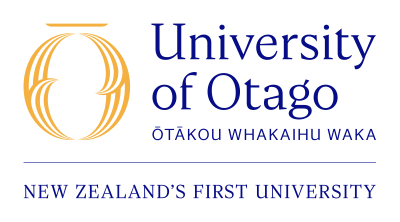
Master of Business (Mbus) in Economics
Dunedin, New Zealand
DURATION
1 Years
LANGUAGES
English
PACE
Full time
APPLICATION DEADLINE
Request application deadline
EARLIEST START DATE
Request earliest startdate
TUITION FEES
Request tuition fees
STUDY FORMAT
On-Campus
Introduction
Economics is about choice and is at the heart of decision-making. Governments, businesses and individuals are all faced with making choices in situations where resources are scarce.
Economics is not just a subject, it is a way of thinking and provides a logical way of looking at a variety of issues. That’s why Otago Economics graduates are so well regarded – they are leading problem solvers and think outside the square.
Why study Economics?
Economics is an exciting, dynamic, contemporary field. Economics affects everyone and applies to a range of disciplines including business, politics, history, law, health sciences and biotechnology. It deals with topics such as unemployment, economic growth, housing, income inequality, international trade, sustainable development and the environment. You name the field, Economics plays a part.
Studying Economics teaches you how to examine people's ideas and come to soundly based conclusions. No matter what career you're aspiring to, you will find Economics invaluable.
Curriculum
Economics is all about choice. This also applies to how you study the programme.
Economics can be studied as:
- the major for a Bachelor of Arts (BA), Bachelor of Commerce (BCom) or Bachelor of Science (BSc) degree
- one of the majors for a BACom, BComSc or BASc combined degree
- part of the multidisciplinary major in Philosophy, Politics and Economics (PPE) for the BA or BCom
- a second major within a Bachelor of Applied Science (BAppSc) degree.
The choice is yours!
Teaching style
Each paper is taught in a lecture format and most papers include weekly tutorials where you'll have the opportunity to discuss the lecture topics in more detail. Just like at secondary school, assessment will include assignments, tests, essays and exams.
Double major/degree options
Economics complements a range of other majors and degree programmes such as Finance, Accountancy, Marketing Management, Management, Law, Political Studies, Philosophy, History, Geography, Psychology, Mathematics and a range of languages. The options are endless.
Minor Subject Requirements
- ECON112 Principles of Macroeconomics
- ECON201 Microeconomics
- ECON202 Macroeconomics
- ECON206 The World Economy
- ECON207 Environmental Economics
- ECON210 Introduction to Econometrics
- ECON271 Intermediate Microeconomic Theory
- ECON301 Labour Economics
- ECON302 International Trade
- ECON303 Economics of Developing Countries
- ECON306 Economics of Health and Education
- ECON308 Public Economics
- ECON318 Behavioural Economics
- ECON319 Game Theory
- ECON375 Econometrics
- ECON377 Mathematical Economics
- ECON403 Monetary Economics
- ECON407 Topics in Advanced Economics
- ECON410 Advanced Microeconomic Theory
- ECON411 Advanced Macroeconomic Theory
- ECON412 Macroeconometrics
- ECON413 Microeconometrics
- ECON480 Dissertation
- ECON485 Master's Thesis Preparation
- ECON492 Dissertation for Philosophy, Politics and Economics
- ECON590 Research Dissertation
Career Opportunities
Otago Economics graduates are well known for their wide range of analytical, problem solving and decision-making skills, and are in high demand by employers. There are countless jobs for Economics graduates. You could be a policy analyst, a business consultant, an economics researcher, a financial adviser, a diplomat, a teacher, a bank manager or a journalist. An Economics background would also be invaluable for someone contemplating setting up his or her own business.
Our graduates can be found in jobs across the public and private sectors, for example:
- Ministry of Business, Innovation and Employment
- Ministry of Foreign Affairs and Trade
- OECD
- Infometrics
- Reserve Bank
- Treasury
- Statistics New Zealand
- Inland Revenue
- Banking – national and international
- Health authorities
- Local governments and planning authorities
- United Nations
